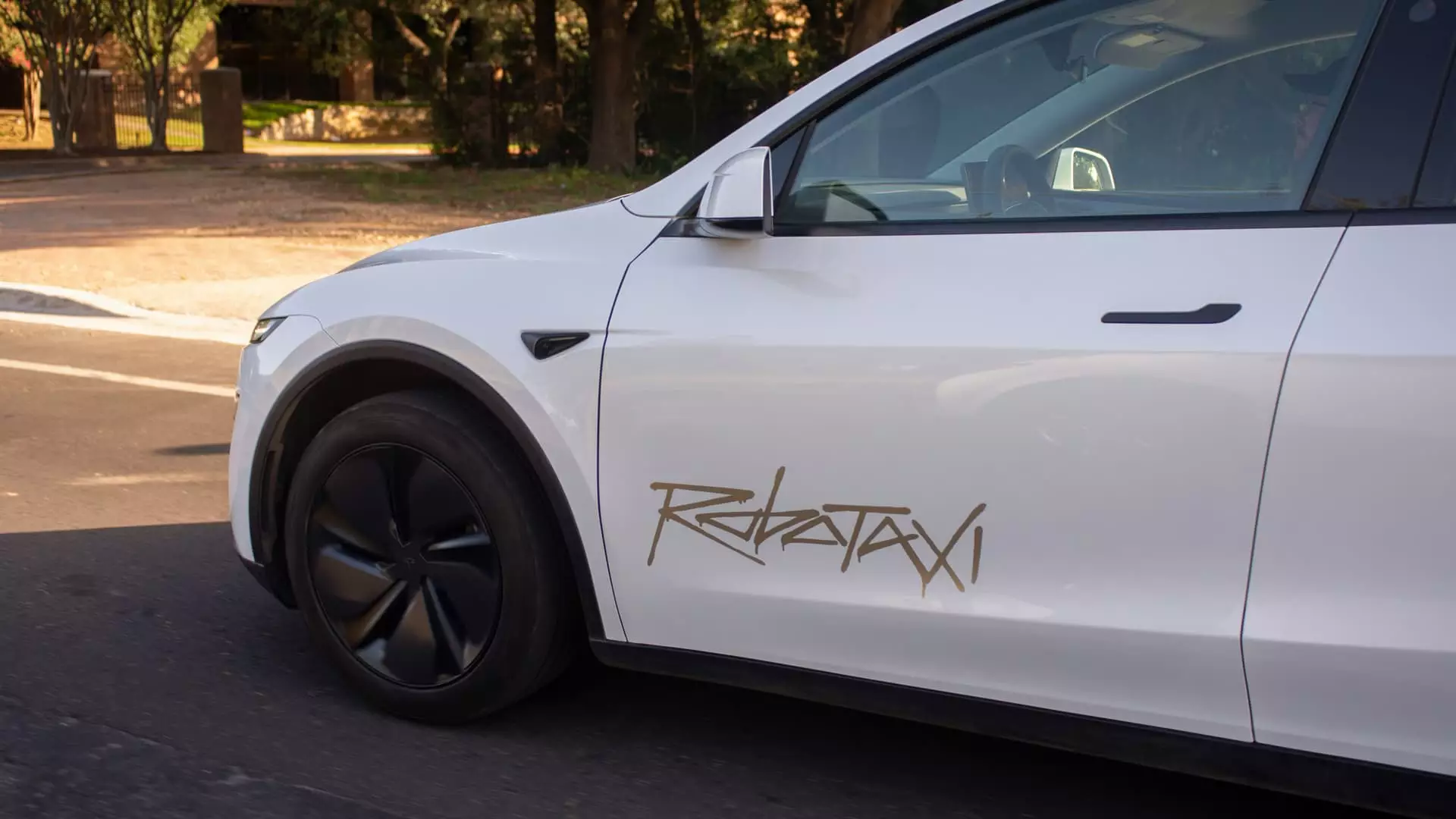This past weekend marked a significant milestone for Tesla, as it launched its long-anticipated Model Y robotaxi service in Austin, Texas. Instantly following the debut, shares of the electric vehicle juggernaut soared by 10%, signaling that investors are still firmly captivated by CEO Elon Musk’s vision for the future. However, as much as this moment is being celebrated within niche financial circles, it’s crucial to analyze what this launch means within the broader context of autonomous driving, public safety, and the ethical considerations of technology deployment.
One cannot overlook the fact that the invitation-only launch was, in itself, a selective event aimed at those most likely to promote the service. Many of the chosen few included enthusiastic Tesla supporters and content creators whose financial investments coincide with the success of Musk’s empire. This raises an uncomfortable question: how unbiased is the feedback that is being shared? Enthusiasts are likely to overlook flaws in the initial offerings of the robotaxi to promote the brand, creating a potentially dangerous halo effect around a service that has met criticism even before its official launch.
First Experiences and Early Criticism
While several passengers reported seamless rides on social media, other voices raised red flags. Reports of Tesla’s robotaxi disregarding traffic regulations and nearly causing accidents bring forth a disconcerting sense of déjà vu. The Verge documented an instance in which one of these robotaxis traveled the wrong way down a street—an alarming oversight that underscores the real risks associated with hastily rolling out such powerful technology. Furthermore, a troubling video circulated online showing the robotaxi abruptly stopping due to stationary police vehicles, raising questions about the underlying intelligence programming the vehicle’s decisions.
Musk celebrated what he called a decade of hard work in creating the AI software and chip design necessary for these autonomous vehicles. Yet, in this celebration, a critical eye must assess whether this technology has reached maturity or simply been thrust into the spotlight due to increasing pressure from shareholders and competitors. While some praise technological ingenuity, the automation race—led by Tesla and stiff competitors like Waymo and Baidu—raises ethical dilemmas about how much risk is acceptable in the pursuit of progress.
The Competitive Landscape and Regulatory Concerns
Tesla finds itself in a tricky position. Once heralded as the pioneer in electric vehicles, it now finds itself scrambling to maintain its lead against established rivals like Waymo, who are already logging hundreds of thousands of commercial driverless rides. Tesla’s ambition to roll out hundreds of thousands of self-driving cars by next year is audacious, yet it appears to flirt with recklessness when public safety and regulatory concerns linger in the background.
Interestingly, Tesla faced pushback from several Democratic lawmakers who expressed understandable concern regarding public safety and the potential consequences of this unregulated experiment on public roads. These lawmakers, along with safety advocates, warned that the technology still requires refinement. When autonomous vehicles break traffic laws or make erratic decisions, questions arise about accountability and the extent to which companies like Tesla are willing to gamble with human lives for the sake of innovation.
As Tesla rides the wave of its recent stock surge, it’s crucial for stakeholders—including consumers, investors, and lawmakers—to remain vigilant about what this robotaxi service represents. The duality of technological advancement versus public accountability looms large. While the prospect of self-driving cars is indeed exciting, the willingness to embrace this future must come with stringent regulations, comprehensive testing, and above all, an ethically grounded approach to innovation.
Tesla’s foray into the autonomous vehicle market may indeed herald a new era of transportation, but as we enthusiastically step into this uncharted territory, we must remember that progress without prudence can lead to dire consequences. The road ahead is fraught with challenges, and the urgency to navigate them wisely has never been greater.

